Broad Clyst Plasterers: Whether you are looking to have a small section of plaster repaired, a whole room plastered or need the plastering of your entire home in Broad Clyst, you will need a competent and professional plasterer to tackle the project for you. Plastering is not really something you can do yourself, it can take years of practise to master.
Even seemingly minor home restoration projects can create the need for plastering work. It could be the likes of fitting coving or cornices before decorating, plaster skimming some dry lining, plastering over artex or applying some screeding. The truth is, it may possibly be any one of dozens of plastering related tasks.
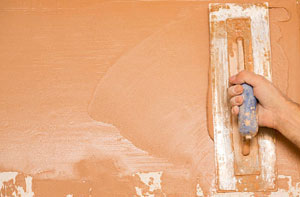
Viewing a portfolio of proficiently completed work is a simple way to judge the quality of any prospective Broad Clyst plasterers, you have to find somebody who knows exactly what they're doing. For this kind of work, you certainly don't want to be hiring "cowboys". Inexperienced plasterers result in poor quality plastering and down the line this can cause huge complications.
As soon as your newly plastered wall is given a splash of paint, any defects will quickly become noticeable. They'll likely look even worse with the sun shining on them. When you have the choice between experienced plasterers in Broad Clyst and poor ones, always choose an experienced one.
Smooth and flat are the main attributes of a plastered surface, because other materials or products will always be applied to it. It is very simple to fill and smooth off any minor dents and cracking, but it is difficult to cover up fundamentally uneven surfaces. A shoddily plastered surface may lead to major problems with the tiling of wall surfaces, the fitting of kitchen units, the fitting of skirtings and the painting and wallpapering of ceilings and walls.
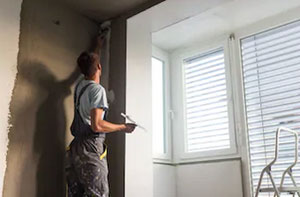
The most sought after Broad Clyst plasterers have their reputations to keep up and will invariably aim to get the perfect finish straight from the trowel, whenever possible. Sanding (especially with machine tools) should never be necessary on newly plastered ceilings and walls, a brief rub down with fine glasspaper is the most that should be needed. In actual fact, if any significant amount of sanding is needed, you can surmise that your plasterer wasn't as skilled as was claimed. Be very wary of re-employing plasterers who make use of orbital sanders.
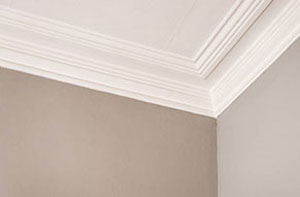
Plasterers perform many tasks but one of the most commonplace these days, is plastering over old artexed ceilings. The "in" finish for ceilings during the 1970's and 1980's, artex is not so fashionable in Broad Clyst currently. To give your ceilings that sleek and contemporary look once again, most plasterers in Broad Clyst will be more than happy to cover them with plaster. On the other hand, many plasterers will also apply artex to your smooth ceilings if you would like to bring back that old style.
DIY Plastering Broad Clyst: When you have plastering work which has to be carried out in Broad Clyst, you've really got a couple of choices. You can either employ a competent plasterer to do the task, or have a crack on your own. Unless you're pretty good at do-it-yourself and have the self-trust to tackle the job, it's probably best left to the professionals. Practicing on an out-of-sight area or a spare bedroom is certainly advisable when you are starting out on your first plastering journey. Whenever possible try to choose a wall that's already got a poorly plastered finish, so that your amateur efforts can't make it much worse. This should enable you to relax and get acquainted with the required procedures and should be a lot less nerve-racking. It is possible to re-plaster a wall as many times as you want to a certain extent, and you can quite easily re-do it if you don't do an adequate job at the first attempt.

You should be able to get some excellent plastering tips by watching and studying YouTube tutorials on the internet if you do not wish to go to the extreme length of signing up for a plastering course. The trouble is that videos can often make it look easy, and plastering is a long way from that. Like most "hands on" activities, the more you practice the better you get at plastering. Sticking to the tried and tested techniques is normally better when plastering, although through trial and error you could even develop your own solutions for getting that perfect plastered finish. Because plastering is mainly about confidence, the more often you do it, the more confident you'll become. You can take on some more intricate plastering tasks when you have mastered the skill to a good standard. If the whole thing goes pear shaped and you mess up the plastering, it will still be possible bring in a professional plasterer to correct your mistakes.
Exactly What is Plaster?
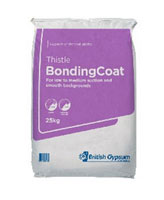
What is Plaster? - A building material that's employed for decorating and protecting wall and ceiling surfaces, plaster has been with us for many centuries. What most of us call "plaster" in the UK is generally looked at as the stuff that's used for coating the inner rooms of homes and structures, while that which is used on outside walls is known as "render" or "rendering". The most commonplace types of plaster mostly contain either gypsum, lime, or cement, but all these components basically work in the same way. Mixed with water to create a stiff, easily workable paste, plaster is simply a dry, fine powder at the time of manufacture. The reactions between the plaster and water produces heat by way of crystallization and the mixture then sets and hardens. Professional Broad Clyst plastering contractors will bring their own plaster products, but if you need to buy some yourself go to Wickes, Travis and Perkins, Screwfix, British Gypsum or B&Q.
Decorative Plastering Services Broad Clyst
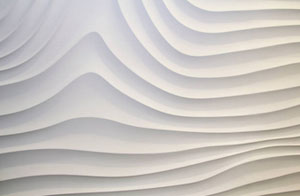
Plastering is certainly not a modern invention and was being carried out by the ancient Egyptians, Greeks and Romans thousands of years ago. In those far off days, they'd have made use of blends of clay and mud. In London during the 13th Century, a form of plaster was put on the walls of shops and houses to help stop fires from spreading. As you will see if you visit buildings of this period, ornamental plaster mouldings and features were widely used in Georgian and Victorian times. Gifted plasterers today are able to produce attractive decorative effects by integrating modern day materials with centuries old methods. This calls for the installation of cornices, dentils, brackets, niches, ceiling roses, corbels and coving. (Tags: Plastering Finishes Broad Clyst, Plastering Effects Broad Clyst, Plaster Mouldings Broad Clyst, Decorative Plastering Broad Clyst)
Plasterboarding (Dry Lining) Broad Clyst
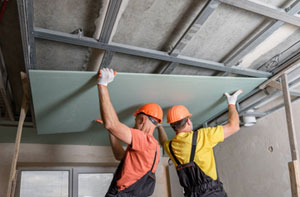
Dry lining is often needed in home improvement projects, and you should be able to find lots of plasterers in Broad Clyst who are happy to offer this service. Dry lining is the procedure by which plasterboard is affixed to metal framing, a brickwork surface or a wood studding or joist to produce a wall surface that doesn't have to be plastered. Occasionally the plasterboard surface itself can be painted, though mainly it will be skimmed with a fine layer of finishing plaster, that can be papered or painted without filling. With regards to fittings, when attaching to a brickwork wall "dot and dab" bonding compound is used, when fixing to a metal frame self-drilling, self tapping (Jack-Point screws) are used and when attaching plasterboard to wooden studding or joists, drywall screws or nails are used. (Tags: Plasterboarding Broad Clyst, Dry Liners Broad Clyst, Dry Lining Broad Clyst)
Polished Plaster Broad Clyst
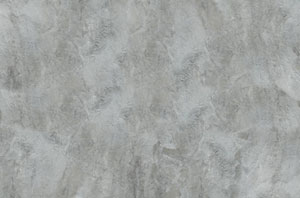
Polished Plaster Broad Clyst: Really fashionable these days, polished plaster is an up-to-date variant of classic Italian plasterered finishes. The term describes a large range of ornamental plaster finishes - from the extremely highly polished Venetian plaster, Marmorino and Lucidato to the rugged look of textured polished plasters. This technique is chiefly used on internal walls and ceilings, to give a finished surface that looks like polished limestone, marble or travertine. Polished plaster gives you a feeling of depth using natural shade variations while being sleek and smooth to touch. Exclusive tailor-made finishes can be created by blending these different types of plasters. Polished plaster can be coloured or dyed using synthetic or natural colourants. The possibility to tint Venetian plaster is especially important when a specific "marble" style is required, or when a colour that does not exist in nature is the goal.
Plasterwork Patching Broad Clyst
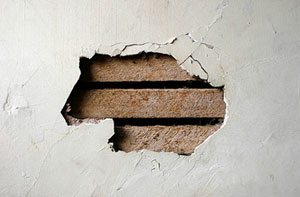
Plaster Patching Broad Clyst: If you own an older property, or have just recently had a bit of work carried out on your home in Broad Clyst, it is fairly likely that you could have damaged or cracked plasterwork that needs to be repaired or patched. So it can be correctly decorated and kept looking neat, your plaster ought to be kept in good condition at all times. Cracked or damaged areas of plasterwork and patches which have been sloppily mended with Polyfilla, look ugly and ruin the appearance of your property. So that you can finish your decorating and get your plaster walls looking in perfect condition once again, you ought to employ a reliable Broad Clyst plasterer who'll get your walls looking good again in no time. Your plaster walls can be impacted by a lot of different issues, with vibration, accidental damage, shrinkage, settlement and damp being amongst the more commonplace causes. There's very little point patching these sections before solving any underlying problems, if you don't there'll probably be a reccurence of the issue. (Tags: Plastering Repair Broad Clyst, Plaster Repairs Broad Clyst, Plaster Patching Broad Clyst, Patching Plaster)
Re-Skimming

Plaster Skimming Broad Clyst: When you have damaged plaster surfaces, new plasterboard or artex that needs covering, you'll need a plasterer to skim or re-skim with plaster. This is one of the most common tasks that plasterers are asked to carry out. Plasterwork can be damaged in the course of home renovations, or new plasterboarded areas might be added. An expert will make those imperfect surfaces in perfect condition for wallpapering or painting by applying a flat, glass-like finish. Before you can decorate over it, you should leave it to dry out for a few days. A beautifully fault-free and flat surface ought to be the final result.
Pebble Dashing Broad Clyst
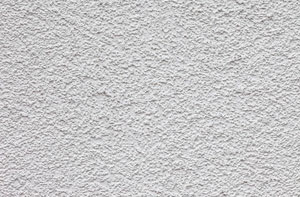
Pebble Dashing Broad Clyst: Although it isn't to everybodys taste pebble dashing has been around for many years and used to decorate and protect the external walls of houses in Devon. Broad Clyst plasterers will often carry out this sort of task for you, although there are pebble dashing specialists currently working in the area.
Pebble dash generally consists of 2 layers of a base made of sand and lime into which small pebbles or gravel are pressed to give both refurbished and new houses a decorative, maintenance free and tough surface finish. (Tags: Pebble Dash Broad Clyst, Pebble Dashers Broad Clyst, Pebble Dash Removal Broad Clyst, Pebble Dashing Broad Clyst)
Plastering Courses Broad Clyst

The most effective way to either master the basics of plastering or to acquire the essential knowledge and skills to begin a career in the plastering trade is to sign up for a plastering course at a local training centre or college. There are a wide range of plastering courses on offer for both people eager to enhance their plastering skills and for newbies. Plastering courses are available for both NVQ or City & Guilds with courses for either total beginners or intermediate tradespeople. Beginner courses (level 1 courses) cover skills like mixing up plaster materials, applying scratch coats (to walls), fixing sheet materials, readying background surfaces, putting on set coats (wall surfaces) and applying floating coats (wall surfaces). Advanced (level 2 courses) deal with such things as fibrous plastering, reverse moulds for fibrous work, plastering to exterior surfaces, cement and sand screed laying and dry lining. For currently available plastering courses in Broad Clyst and around Devon, try searching on Google or Bing. You are able to find out a little more about City and Guilds plastering courses HERE.
Plasterer Broad Clyst
A plasterer in Broad Clyst is a skilled tradesman who carefully spreads a smooth layer of prepared plaster over a previously coarse and irregular surface, so that it can be decorated with paint or other materials. Plastering as an occupation has existed for hundreds of years, while the general technique has been used in the finishing and repair of structures for millennia. These days, mostly applied to the internal walls and ceilings of residential and commercial premises, plaster is used to create an even, smooth surface that is then ready to accept the final finishing material. It is also often used to form decorative moldings for decorating the ceiling and other areas of the wall. Playing an important role in a number of home remodelling projects in Broad Clyst, plastering is also used in the the construction of extensions, loft conversions, garages and porches.
Plastering Tasks Broad Clyst

Broad Clyst plastering specialists will likely help with asbestos testing Broad Clyst, recessed TV walls, false ceilings, re-skimming plaster walls and ceilings Broad Clyst, estimates for plastering Broad Clyst, artex broken leather patterns, stucco plaster in Broad Clyst, lime plastering, rendering with sand and cement, floor levelling and screeding Broad Clyst, Venetian polish plastering, plastering over artex, decorative mouldings, skirting board installation in Broad Clyst, dragged plaster Broad Clyst, skimming over brickwork, drywall plastering and skimming in Broad Clyst, damaged plaster restoration, pitted plastering Broad Clyst, lay in grid suspended ceilings, monocouche rendering, magnetic plaster, pebble dashing walls Broad Clyst, exterior rendering and screeding, ornate coving, lime rendering, relief plastering Broad Clyst, stud partitioning, ceramic tiling, screeding before tiling Broad Clyst and other plastering work in Broad Clyst, Devon.
Broad Clyst Plastering Services
- Broad Clyst Plastering Courses
- Broad Clyst Plaster Skimming
- Broad Clyst Plastering
- Broad Clyst Floor Screeding
- Broad Clyst Artexing
- Broad Clyst Polished Plaster
- Broad Clyst Plasterers
- Broad Clyst Commercial Plastering
- Broad Clyst Plaster Patching
- Broad Clyst Domestic Plastering
- Broad Clyst Rendering
- Broad Clyst Plasterboarding
- Broad Clyst Plaster Overskimming
- Broad Clyst Partitioning
Other Useful Trades in Broad Clyst Devon

Obviously, when you happen to be doing home repairs and improvements in Broad Clyst, Devon, you are likely to be in need of all types of different tradesmen and together with plasterers in Broad Clyst, Devon, you may also need domestic & commercial cleaners in Broad Clyst, tiling in Broad Clyst, polished plaster in Broad Clyst, painters in Broad Clyst, coving installers in Broad Clyst, renderers in Broad Clyst, builders in Broad Clyst, pebble dashers in Broad Clyst, dry lining services in Broad Clyst, plasterboard installation in Broad Clyst, rubbish removal in Broad Clyst, electricians in Broad Clyst, artexers in Broad Clyst, plaster mouldings in Broad Clyst, external wall insulation in Broad Clyst, carpenters & joiners in Broad Clyst, screeders in Broad Clyst or bricklaying in Broad Clyst.
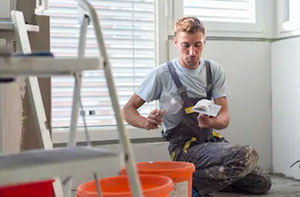 Plasterers Broad Clyst
Plasterers Broad Clyst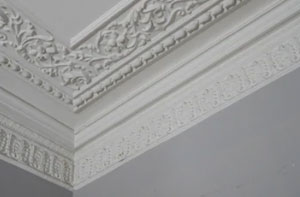 Plastering Near Me
Plastering Near Me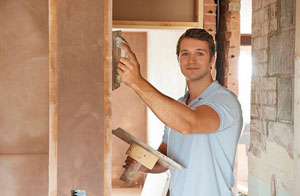 Plasterer Broad Clyst
Plasterer Broad ClystMore Devon plasterers: Teignmouth Plasterers, Ilfracombe Plasterers, Sidmouth Plasterers, Bovey Tracey Plasterers, Ottery St Mary Plasterers, Dawlish Plasterers, Newton Abbot Plasterers, Tiverton Plasterers, Tavistock Plasterers, Exmouth Plasterers, Axminster Plasterers, Kingsteignton Plasterers, Barnstaple Plasterers, Ivybridge Plasterers, Honiton Plasterers, Northam Plasterers, Totnes Plasterers, Bideford Plasterers, Exeter Plasterers, Cullompton Plasterers, Fremington Plasterers, Crediton Plasterers and Braunton Plasterers.
Decorative Plastering Broad Clyst - Screeding Broad Clyst - Polished Plaster Broad Clyst - Coving Broad Clyst - Plasterer Broad Clyst - Plaster Skimming Broad Clyst - Plasterboarding Broad Clyst - Plastering Broad Clyst - Plasterers Broad Clyst





